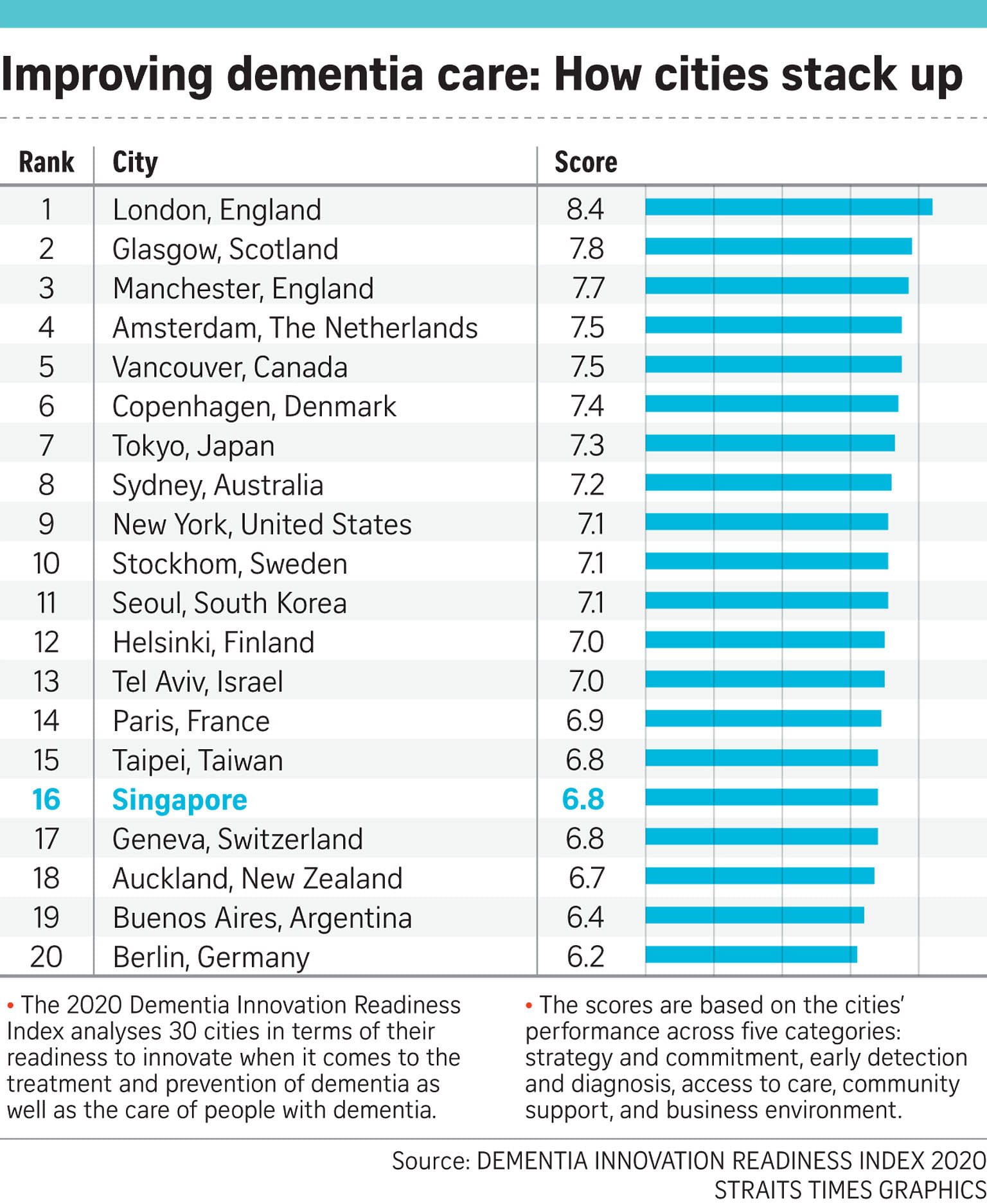Singapore 16th out of 30 cities in dementia innovation readiness
Republic scores better in commitment and strategy than early detection and diagnosis
Sign up now: Get ST's newsletters delivered to your inbox
Joyce Teo Senior Health Correspondent, Joyce Teo
Follow topic:
Singapore has made significant progress in dealing with dementia but still has much room for improvement in areas like detection, according to a new report.
It placed the country in 16th spot among 30 cities in a study that assessed their readiness to promote novel approaches in combating the condition. While Singapore scored relatively well in areas like strategy and commitment, it did not do as well in early detection and diagnosis.
The findings from the 2020 Dementia Innovation Readiness Index were released by the United States-based Global Coalition on Ageing (GCOA), Britain's Alzheimer's Disease International (ADI) and Singapore's Lien Foundation at a virtual event yesterday.
The best performing city was London, which is known for its progressive policies and practices with regard to dementia care. Glasgow was next, followed by Manchester.
The top performers tended to be in high-income countries with some level of nationalised healthcare and a national plan that helps promote innovation at city level, said a statement accompanying the report.
Tokyo, in seventh place, was the best performer of the 10 Asian cities evaluated, followed by Seoul in 11th spot and Taipei in 15th.
While Asian cities tended to crowd the bottom half of the index, they also largely have younger populations than in Europe, so dementia is not yet a policy priority, said the statement.
The report, which aims to challenge cities to develop and adopt innovations to improve dementia care, looked at readiness to innovate in five categories - strategy and commitment; early detection and diagnosis; access to care; community support; and business environment.
Publicly available data and on-the-ground insights from nearly 100 experts in the cities were considered.
Singapore came in 9th with regard to strategy and commitment, 10th for community support and third for business environment, but lagged behind in 21st place with regard to early detection and diagnosis and 18th for access to care.
The statement noted the solid government leadership on dementia and age-related issues, especially in recent years, with more funding going into long-term care, including for dementia.

"Unlike many cities, Singapore also has a dementia plan in place, although there is a need to make it public," the statement said.
The barriers include the lack of publicly available diagnosis rates. Accurate and early diagnosis can help to ensure that the progression of the disease is appropriately managed and monitored, for instance.
The three partners behind the index said that cities have largely failed to support innovation in dementia care comprehensively, although bright spots exist.
"Ageing and urbanisation are the twin defining trends of our time," said Ms Radha Basu, the Lien Foundation's research director.
"As societies age and dementia becomes more common, this index issues a clear call to city-level leaders and helps cities learn from each other on how to best manage this great, global challenge to health and social care."
This is the first dementia innovation readiness study to focus on cities. It came about after the Lien Foundation approached GCOA and ADI in late 2018 to collaborate on the initiative. GCOA and ADI had earlier collaborated on two indexes that evaluated dementia innovation readiness in selected countries in 2017 and 2018.

